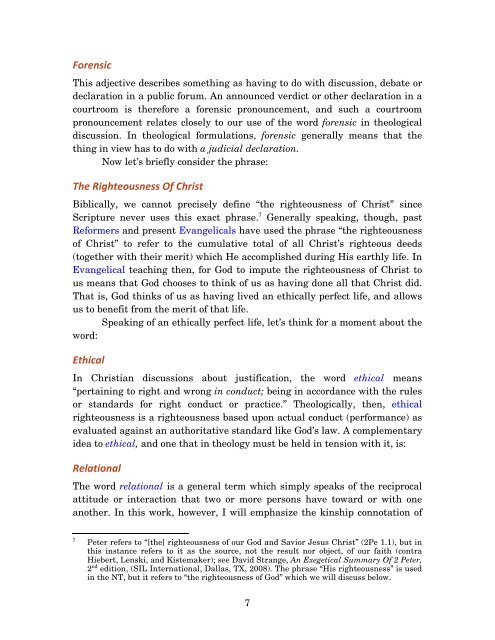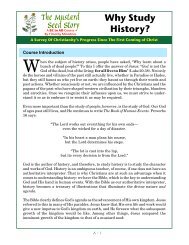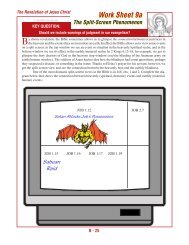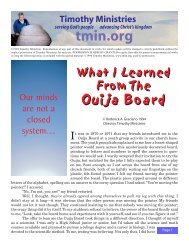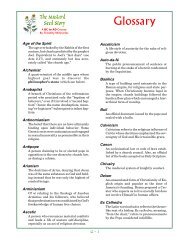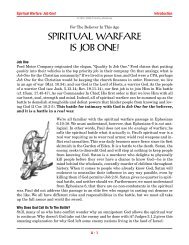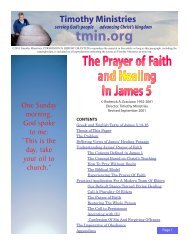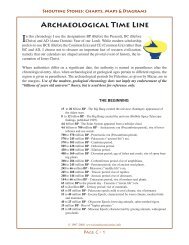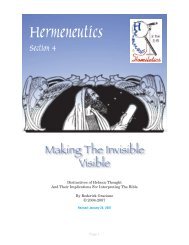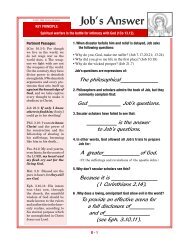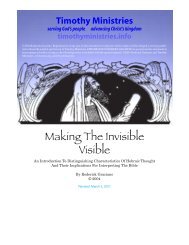Alien Righteousness? - Timothy Ministries
Alien Righteousness? - Timothy Ministries
Alien Righteousness? - Timothy Ministries
You also want an ePaper? Increase the reach of your titles
YUMPU automatically turns print PDFs into web optimized ePapers that Google loves.
Forensic <br />
This adjective describes something as having to do with discussion, debate or<br />
declaration in a public forum. An announced verdict or other declaration in a<br />
courtroom is therefore a forensic pronouncement, and such a courtroom<br />
pronouncement relates closely to our use of the word forensic in theological<br />
discussion. In theological formulations, forensic generally means that the<br />
thing in view has to do with a judicial declaration.<br />
Now let’s briefly consider the phrase:<br />
The <strong>Righteousness</strong> Of Christ <br />
Biblically, we cannot precisely define “the righteousness of Christ” since<br />
Scripture never uses this exact phrase. 7 Generally speaking, though, past<br />
Reformers and present Evangelicals have used the phrase “the righteousness<br />
of Christ” to refer to the cumulative total of all Christ’s righteous deeds<br />
(together with their merit) which He accomplished during His earthly life. In<br />
Evangelical teaching then, for God to impute the righteousness of Christ to<br />
us means that God chooses to think of us as having done all that Christ did.<br />
That is, God thinks of us as having lived an ethically perfect life, and allows<br />
us to benefit from the merit of that life.<br />
Speaking of an ethically perfect life, let’s think for a moment about the<br />
word:<br />
Ethical <br />
In Christian discussions about justification, the word ethical means<br />
“pertaining to right and wrong in conduct; being in accordance with the rules<br />
or standards for right conduct or practice.” Theologically, then, ethical<br />
righteousness is a righteousness based upon actual conduct (performance) as<br />
evaluated against an authoritative standard like God’s law. A complementary<br />
idea to ethical, and one that in theology must be held in tension with it, is:<br />
Relational <br />
The word relational is a general term which simply speaks of the reciprocal<br />
attitude or interaction that two or more persons have toward or with one<br />
another. In this work, however, I will emphasize the kinship connotation of<br />
7<br />
Peter refers to “[the] righteousness of our God and Savior Jesus Christ” (2Pe 1.1), but in<br />
this instance refers to it as the source, not the result nor object, of our faith (contra<br />
Hiebert, Lenski, and Kistemaker); see David Strange, An Exegetical Summary Of 2 Peter,<br />
2 nd edition, (SIL International, Dallas, TX, 2008). The phrase “His righteousness” is used<br />
in the NT, but it refers to “the righteousness of God” which we will discuss below.<br />
7


